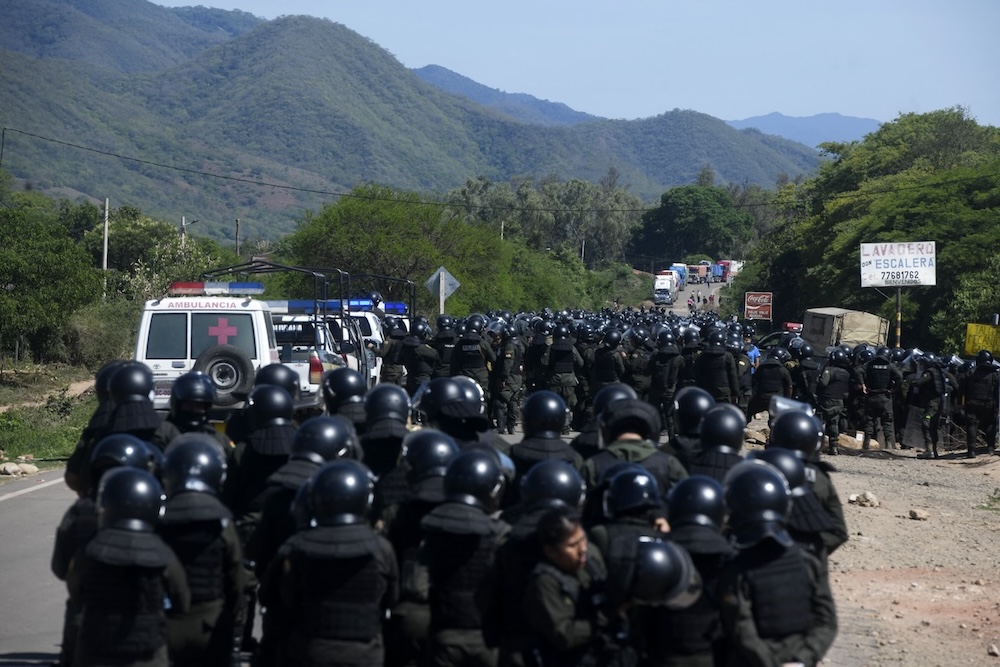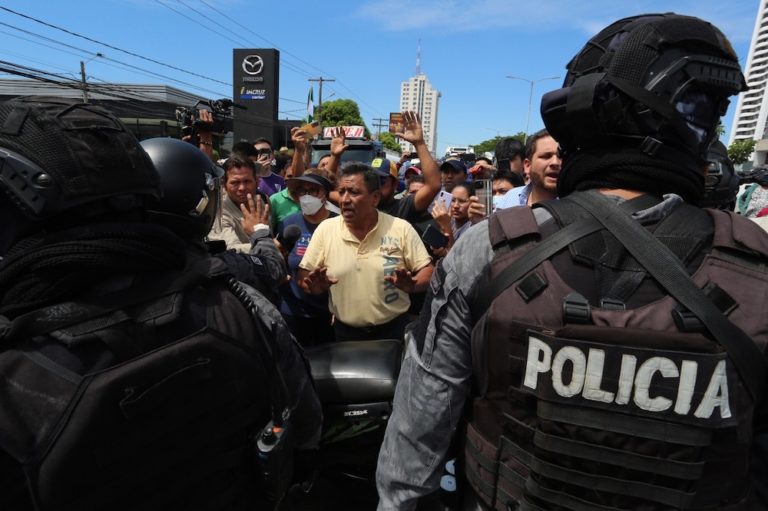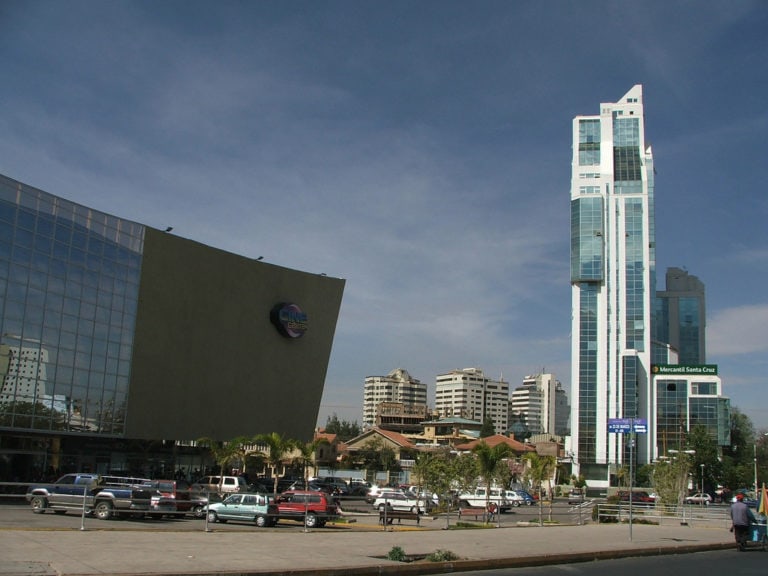Tensions between Bolivia’s current president and his political rival have led to massive protests and road blockades.The ongoing unrest has resulted in an increase in violence against journalists covering the protests.
This statement was originally published on rsf.org on 8 November 2024.
Widespread protests and road blockades have been causing turmoil in Bolivia since October, and journalists attempting to cover the situation have been attacked with shocking aggression. Reporters Without Borders (RSF) strongly condemns this growing wave of violence and persecution against the press and urges the Bolivian authorities to guarantee the safety of journalists.
Tensions between Bolivia’s current president and his political rival have led to massive protests and road blockades.The ongoing unrest has resulted in an increase in violence against journalists covering the protests. According to RSF’s information, protestors have attacked at least 25 journalists at blockade points. Accusing these reporters of being part of “the press that has sold out”, the protesters have stolen their work equipment and assaulted them with sticks, stones and dynamite explosions.
“Violence against the press in Bolivia has increased dramatically, as reporters have become targets in a tense political climate. In times of crisis, it’s all the more important to protect those who keep society informed. RSF urges the Bolivian authorities to guarantee journalists’ safety and allow them to carry out their work without fear of reprisals. Effective measures must be put in place to ensure that reporters can cover the news without being detained, threatened or attacked.”
Artur Romeu, Director of RSF’s Latin America Bureau
A glimpse of the attacks against journalists
On 1 November, Jorge Ábrego, a photojournalist and contributor to the news agency EFE, suffered a heart attack as a result of the expansive effects of the explosion of a dynamite used by the demonstrators on a road blockade in the town of Parotani. He was evacuated to a health center, where he spent three days in intensive care. He had already been the victim of an attack just six days prior, when protestors threw stones at him and damaged his vehicle.
On 29 October, several journalists were detained and attacked by protestors who were attempting to undo a roadblock between Santa Cruz de La Sierra and Cochabamba. According to Rómer Saucedo, a journalist from the private TV channel Red Uno, the protestors threw rocks and sticks at him and detonated dynamite aimed in his direction. His cameraman, Ricardo Pedraza, said they attacked him with sticks and stones, and wanted to burn him. He testified that his jackets and equipment were burned by the demonstrators. Despite the journalists’ attempt to explain that they were there to work, the protestors did not cease their attacks until the journalists gave up their equipment. Josué Chubé, a journalist from the TV channel Unitel, was also attacked and his equipment was stolen. The journalists managed to escape hours after the attack, thanks to the help of local residents.
On 26 October, another journalist from Unitel, Jurgen Guzmán Ribera, was the victim of a strangulation attempt at a blockade in the Melga region, near the city of Cochabamba. As the journalist tried to conduct an interview, protestors stole and searched the journalist’s phone, seized his recording equipment, and one protestor put a rope around the reporter’s neck. Luckily, Jurgen Guzmán Ribera managed to free himself.
On 25 October, in the same region, journalists from the television channels Red Uno, Bolivia TV and the newspaper Opinión also faced protestors who attempted to confiscate their equipment as they reported on a road being unblocked. Days earlier, on 22 October, journalists at a blockade in the town of Bulo Bulo were forced to the ground by allegedly armed blockaders. On 20 October, in Parotani, a journalist and a cameraman from Voice of America were encircled and menaced by protestors. The situation was so hostile that the two media professionals stopped reporting and left.
Physical attacks against journalists have intensified in Bolivia since 2020, especially in rural areas. Many radio and TV stations have had their premises vandalised and have been forced to interrupt their activities. Bolivia ranks 124th out of 180 countries and territories in RSF’s 2024 World Press Freedom Index.



